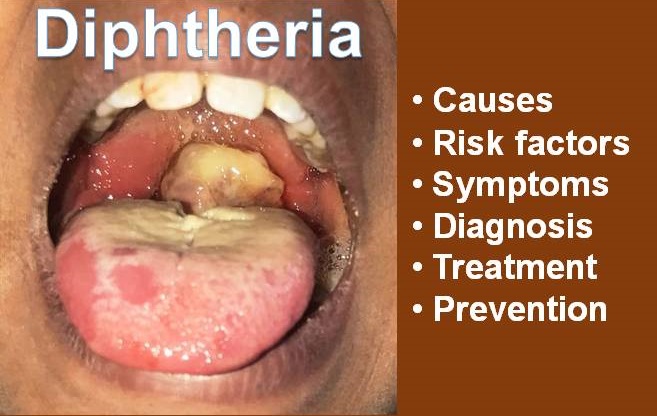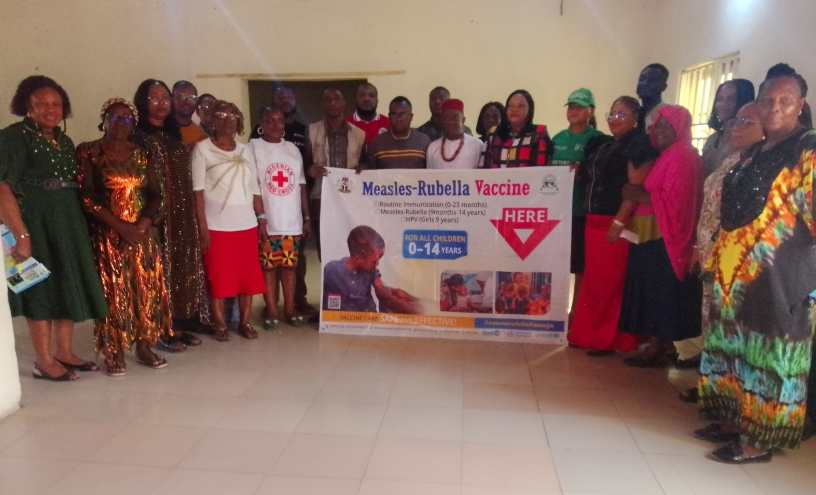Alfred Ajayi
In recent months, Nigeria has been grappling with the resurgence of diphtheria – a deadly yet preventable disease. Once considered under control due to routine childhood immunization, the bacterial infection is making a worrying comeback, particularly in under-immunized communities.
As of March 9, 2025, 26 Nigerian states plus the Federal Capital Territory (FCT) have recorded confirmed diphtheria cases. With growing cases across several states, the outbreak has become a major public health concern, demanding urgent, multi-sectoral action.
Diphtheria is a highly contagious bacterial infection caused by Corynebacterium diphtheriae. It primarily affects the mucous membranes of the nose and throat but can extend to the skin and other body parts. The bacteria release a toxin that can lead to severe respiratory issues, heart failure, paralysis, and even death if left untreated.
Symptoms of diphtheria typically appear 2–5 days after infection and can vary in severity. They include: sore throat and hoarseness, fever and chills, and swollen glands in the neck.
Others are: a thick, gray or white coating on the throat and tonsils (a hallmark sign), difficulty breathing or rapid breathing, nasal discharge (sometimes bloody) as well as fatigue and general malaise.
In some cases, the toxin can spread to other organs and cause complications such as myocarditis (inflammation of the heart), neuritis (nerve inflammation), and kidney damage.
Of what risk to Nigeria?
Diphtheria is particularly dangerous in low-resource settings where immunization coverage is poor, healthcare infrastructure is weak, and public awareness is limited. According to the Nigeria Centre for Disease Control and Prevention (NCDC), thousands of suspected cases have been reported since 2023, with confirmed outbreaks in multiple states, especially in Northern Nigeria.
Diphtheria poses a significant threat to children, particularly those under five who are not fully immunized. Unfortunately, such children are found in all the nooks and crannies of the country.
Besides, misinformation, poor access to health facilities, and weak surveillance systems compound the risk associated with vaccine hesitancy. If not urgently and properly contained, outbreak of diphtheria is capable of straining an already burdened health system and reverse hard-won gains in child health.
High-Risk States
As of mid-2025, high risk states include: Kano, Yobe, Katsina, Borno, Bauchi, Kaduna, Osun, Lagos, FCT Abuja.Many of these areas suffer from low routine immunization rates and a high concentration of internally displaced persons, which increases vulnerability.
Epidemiological Week (Epi week) is used by public health authorities like the NCDC, WHO, or CDC) to organize and compare disease data consistently. It is especially useful for tracking outbreak trends, monitoring seasonal diseases, and comparing data across different years or regions.
Cumulatively between Epi-Week 19, 2022 – Epi-Week 10, 2025, 42,642 suspected cases were reported from all the states of the federation and FCT across 350 LGAs. Kano led with 24,239 followed Yobe (5,330), Katsina (4,237), Bauchi (3,066), Borno (3,058), Kaduna (777) and Jigawa (364).
It is noteworthy that majority – 16,234 (62.9%) of the confirmed cases were among children aged 1 – 14 years. Only 4,981 (19.3%) out of the 25,812 confirmed cases were fully vaccinated with a diphtheria toxoid-containing vaccine. A total of 1,319 deaths were recorded among confirmed cases.
Containment strategies
Containing diphtheria requires swift and sustained action on several fronts. Vaccination Campaigns must be intensified as the primary method of prevention. Children should be given the DTP (Diphtheria, Tetanus, Pertussis) vaccine as part of their routine immunization schedule, with booster doses as recommended.
Special immunization outreaches should be organized and intensified, especially in high-risk states with catch-up campaigns targeted at older children and adolescents who missed routine shots.
Also very important is public awareness and health education to destroy ignorance and misinformation which fuel vaccine hesitancy. Media campaigns, community engagement, and school-based education can help dispel myths and encourage vaccine uptake.
Religious and traditional leaders should be enlisted to endorse immunization efforts. This has proven effective owing to the fact that these are influential personalities who can sway the minds of their subjects easily.
Also necessary is surveillance and rapid diagnosis. This helps greatly because timely identification of cases is critical. Health workers must be trained to recognize symptoms early and report suspected cases. Also, laboratory capacity must be strengthened for swift confirmation of infections.
Once diagnosed, diphtheria must be treated promptly with antitoxins and antibiotics such as erythromycin or penicillin. It is helpful to isolate infected individuals to prevent further spread while close contacts are prophylactically (preventively) treated and monitored.
Multi-stakeholder approach
Combating diphtheria is not solely the responsibility of the health sector. It requires a whole-of-society approach.
Government at all levels should provide policy direction and funding for mass immunization and outbreak response. They must ensure adequate vaccine supply and cold chain management while also coordinating data sharing through the NCDC for effective monitoring and response.
Healthcare workers and institutions are to provide accurate diagnosis and treatment, educate patients and families on the importance of vaccination, as well as monitor vaccine defaulters and report public health threats promptly.
Also, civil society and non-governmental organizations must partner with the government to amplify outreach, especially in hard-to-reach areas. They can provide logistical support and community mobilization and conduct awareness campaigns and counter misinformation.
Critical media role
The media also play a central role in public health education. They must report diphtheria and issues associated with it responsibly to avoid panic. They need to spotlight gaps in service delivery to hold authorities accountable.
Religious and traditional institutions are equally critical as trusted voices in communities. They should be educated to take up the assignment as advocates for child vaccination during sermons and community meetings.
Family is not left behind. Parents and guardians must seek education about this disease and ensure that children receive all recommended doses of the DTP vaccine. They should not hesitate to seek medical attention at the first sign of illness.
Since diphtheria is preventable, the fact that it has killed many people is an indictment on the quality of healthcare services available across the country and poor knowledge about the disease across spectrums of the society.
The current spread can be halted with coordinated, inclusive action. Nigeria must ramp up its immunization coverage, enhance disease surveillance, and engage every segment of society to protect its most vulnerable citizens – our children.
Ignoring diphtheria is not just a health failure; it’s a national security risk that must be urgently addressed.




